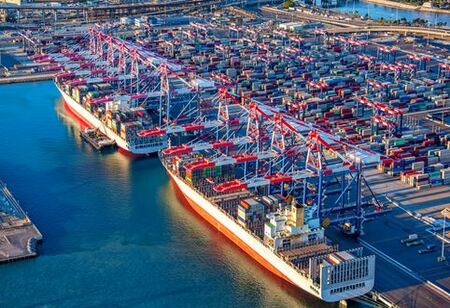
Trump Administration Eases Port Fees on China-built Ships


In an effort to boost American shipbuilding and challenge China's maritime hegemony, the Trump administration protected domestic exporters and ship owners that service the Great Lakes, the Caribbean, and US territory from port fees that would be applied to Chinese-built boats.
The US Trade Representative's Federal Register notice was diluted from a February proposal that would have imposed taxes of up to $1.5 million each port call on ships built in China, chilling the world's shipping industry.
Executives in the ocean shipping industry were concerned that stacking fees might be imposed on almost all carriers.
They said that the additional expenses would force billions of dollars in additional costs on American customers and render US export prices unappealing.
According to the updated plan, the tax would be imposed on impacted ships no more than six times annually and once each journey.
Additionally, the agency rejected its first proposal to base fines on the proportion of Chinese-built ships in a fleet or on future contracts for Chinese ships.
Additionally excluded are empty ships that arrive at American ports to be filled with bulk exports like grain or coal.
In six months, the fees will start to be implemented. While container ships will pay a price based on the quantity of boxes they transport, affected bulk carriers will be charged a cost based on the weight of their cargo. Whether those fees would be lower than USTR had initially anticipated was not immediately apparent.
Also Read: Tadashi Yanai: Making Uniqlo the World's Go-to Casual Wear Brand
The ruling was made one year after USTR's probe against China's maritime actions began. The agency came to the conclusion in January that China controls international shipping through unfair policies and practices. The modification came after a wave of public and private criticism from the international maritime industry, which included U.S. importers and exporters of commodities ranging from coal and corn to bananas and concrete, as well as local port and vessel operators.

